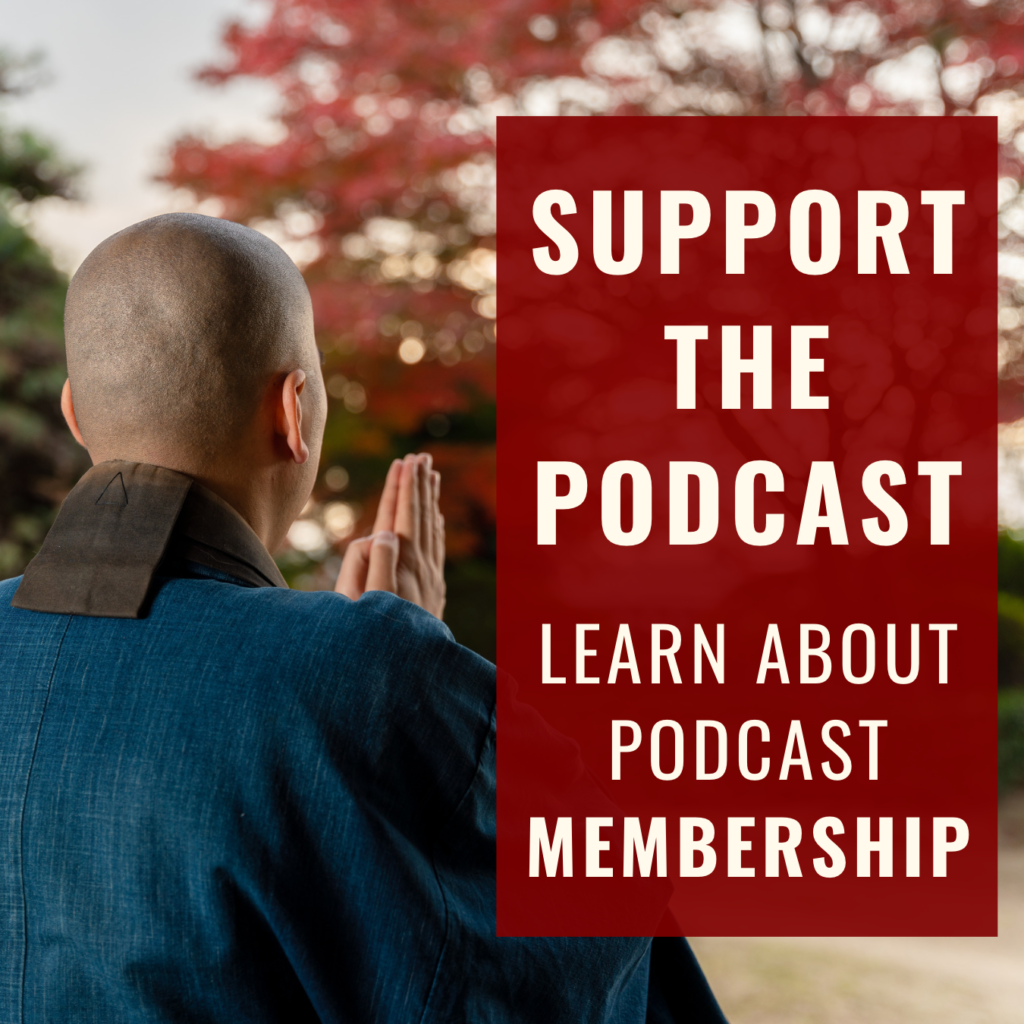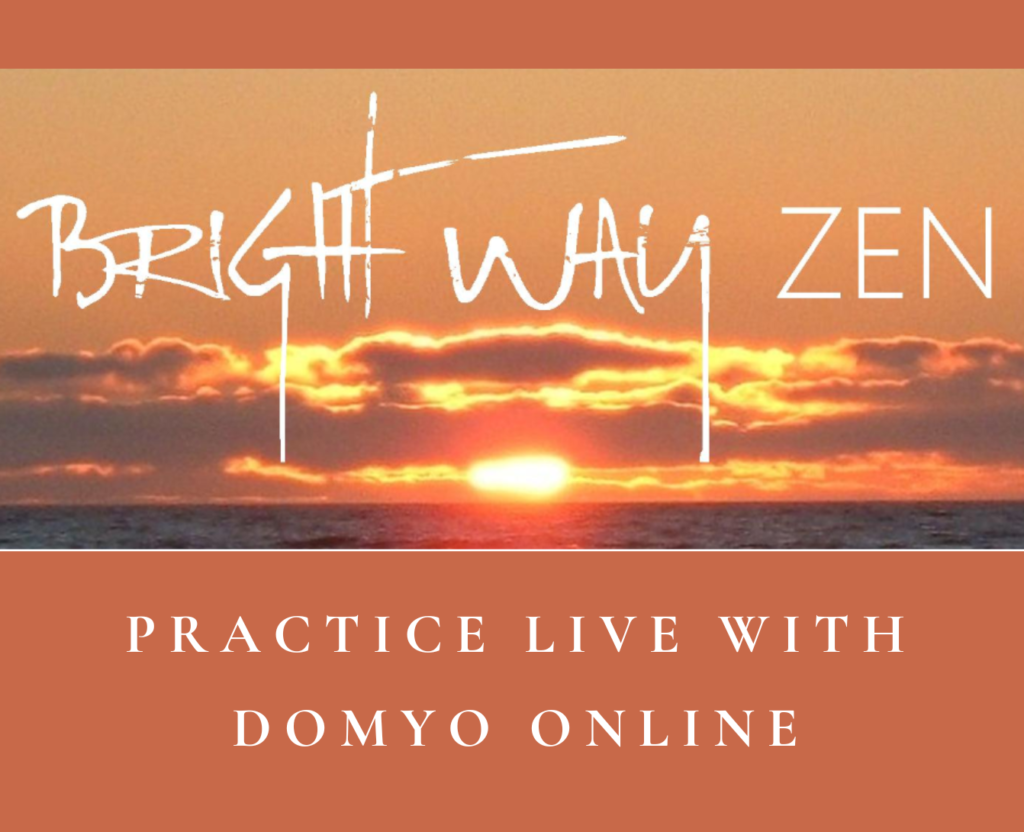
by Domyo | Sep 22, 2022 | Buddhist Teachings
In this episode I review the meaning of the Fourfold Bodhisattva Vow, and then explore the first of the vows in detail: Beings are numberless, I vow to free them. What does it mean to free beings, and what does it mean to our practice that we vow to free every last one of an infinite number of beings? In the next couple episodes I will similarly explore the second, third, and fourth vows.

by Domyo | Sep 12, 2022 | Buddhist Teachings
From the time of the Buddha, Buddhists have spent time contemplating impermanence – often by deliberately meditating on their own mortality and eventual death. This practice isn’t for everyone, but it can help motivate us stay motivated to practice, focus on our deepest aspirations, take responsibility for our karma, maintain equanimity, and remember the preciousness of this moment. It can also lead to profound insights about the nature of the self.

by Domyo | May 21, 2022 | Buddhist Teachings
This is my second episode on one of the central teachings of Mahayana Buddhism, that all beings have Buddha-Nature (buddhata). In the first episode I discussed the view of human nature in original Buddhism and why the teaching of Buddha-Nature may have arisen in response to it. Then I talked about the beauty of the Buddha-Nature teaching along with some of its potential pitfalls. In this episode I discuss more about what Buddha-Nature is and is not, how we can benefit from this teaching, and in what sense having Buddha-Nature is a good thing even before you awaken to it.

by Domyo | May 13, 2022 | Buddhist Teachings
One of the central teachings of Mahayana Buddhism is that all beings have Buddha-Nature (buddhata). Awakening to this Buddha-Nature allows one to attain unsurpassed enlightenment, so it is clearly pure, good, and redemptive. But what is Buddha-Nature? Sometimes it is presented as our potential for awakening. Sometimes it is associated with our bodhi-mind – that which causes us to seek the Buddha Way. Not surprisingly, the teaching of buddhata is difficult to grasp. Even so, we can have a sense of it, and this offers an experience of personal redemption and deep faith in the Dharma.

by Domyo | Apr 28, 2022 | Buddhist Teachings
Reality has two dimensions. Along the dependent dimension, our world is unequivocally full of greed, hate, delusion, and suffering, and any moral person should feel compelled to do something to make things better. Along the independent dimension, things are just as they are, and when we don’t impose our expectations and preconceived notions on the world, it’s a miracle anything exists at all. The two dimensions do not conflict with one another but are simultaneously true. The challenge is to be awake to, and live in harmony with, both dimensions, without clinging to either one.

by Domyo | Mar 22, 2022 | Buddhist Practice, Buddhist Teachings
Buddhism is a path of renunciation. Many people assume this means we aim to separate ourselves from the things and beings of the world and work ourselves into a state where we no longer care about them – at least not to the point where it might hurt or upset us. Fortunately, this assumption couldn’t be further from the truth. Renunciation leaves us much more capable of sincere and open-handed love.

by Domyo | Jan 21, 2022 | Buddhist Teachings
According to one of the foundational Buddhist teachings, we are doomed to be “blown about” by Eight Worldly Winds unless we engage in spiritual practice: Gain and loss, success and failure, praise and blame, pleasure and pain. Personally, I find this a vivid and useful metaphor for the human experience. I share an excerpt from a Pali sutta about the Eight Worldly Winds, and then explore what it means to be “blown about” by them, and what we can do about it.

by Domyo | Sep 22, 2021 | Buddhist Teachings
Bodhicitta can be translated as Way-Seeking Mind, or the Mind of Enlightenment. Bodhicitta is the part of us that recognizes and seeks truth and goodness, inspiring our spiritual search and motivating our practice. In a sense, bodhicitta is the part of us that is already awakened, because without it we wouldn’t recognize or seek truth and goodness in the first place. In Mahayana Buddhism, bodhicitta is essential to the path and a cause for gratitude. It also can be seen as the primary source of redemption for humankind, even when it seems the world is dominated by greed, hate, and delusion.

by Domyo | Aug 13, 2021 | Buddhist Teachings, Zen Teachings
The medicine of suchness is life-saving, because even the happiest and most fortunate human life inevitably contains suffering. And sometimes – in our personal lives or in the wider world – we face terrible things that arouse anxiety, depression, fear, despair, or rage. Our climate and ecological emergency is one such terrible thing, bringing us face to face with loss on a scale never before contemplated by human beings. Our Zen practice offers us suchness as a medicine that can alleviate our despair and help us access strength and gratitude.

by Domyo | May 25, 2021 | Buddhism Today, Buddhist Teachings
As modern, mostly lay Buddhists – particularly those of us who are western, adult converts to the religion – we may seek encouragement and guidance from within the tradition for values we already hold. How much support does Buddhism actually give for things like social action, the importance of justice, honoring our connection to nature, enjoying our family and our daily lives, and learning to love ourselves? If we don’t find support within Buddhism for our values, do we simply look elsewhere, or do we expand Buddhism? In this episode I focus specifically on social action/activism, but the discussion is relevant for any deeply held concern or value you bring to Buddhism.
















